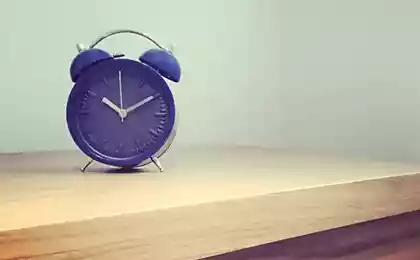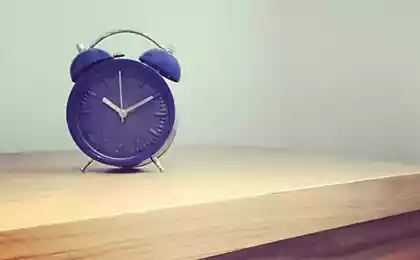18
5 Things That Make Your Life More Difficult

The paradox of modern life is that the more technology and services we have to simplify our existence, the more confused and overwhelmed we feel. Research shows that the average urban dweller makes about 35,000 decisions a day - five times more than our ancestors just a century ago. Not surprisingly, decision fatigue has become one of the major challenges of the twenty-first century.
Digital statistics of our time: The average person checks a smartphone 96 times a day, spends 2.5 hours on social networks daily, and receives about 121 emails per day. At the same time, the level of stress and anxiety among the population of developed countries is steadily increasing.
But what if the problem is not the number of tasks, but the fact that we create ourselves unnecessary difficulties? What if the path to simplicity is not to acquire new solutions, but to get rid of what is in the way? Let’s take a look at the five familiar things that make our lives more difficult, and find ways to get rid of them.
1. Smartphone as the Center of the Universe
Your pocket computer is both humanity’s greatest invention and its most insidious trap. Research from the University of California shows that even the presence of a switched-off smartphone on the table reduces cognitive abilities by 10%. What about the constant stream of notifications!
“Every notification is a microstress to the brain. It produces cortisol as if you are on a constant alert state, explains neuroscientist Daniel Levitin.

The problem is not the device itself, but how we use it. The average user switches between apps every 19 seconds. This creates the illusion of productivity, but it actually destroys the capacity for deep concentration.
Practical solutions:
- Digital detox: Take 2-3 hours a day without a phone
- Notifications: Leave only calls and critical messages
- Physical barriers: Charge your phone in another room overnight
- Replacement: Instead of a phone, use a separate alarm clock and clock.
- Batching: Check messages no more than 3-4 times a day
2. Chasing Trends and Fashion
The modern economy is built on creating artificial obsolescence. What was “must-have” yesterday is now considered obsolete. This mechanism works not only in technology, but also in nutrition, fitness, lifestyle. The keto diet is replaced by interval fasting, which gives way to a carnivore diet, and then veganism.
Psychologists call this “hamster-in-the-wheel syndrome” – a constant movement without real progress.
A Harvard Business Review study found that people who frequently change systems and approaches are 40 percent less productive than those who maintain stable habits. Constant change of reference points prevents the brain from forming automatic behavior patterns, which requires additional energy costs.
Liberation strategy:
- One-year rule: Do not change the system for at least a year after implementation
- Necessity test: Ask yourself, “Does this solve the real problem?”
- Quality vs quantity: Better one expensive thing than ten cheap ones
- Minimalist wardrobe: basics of neutral colors
- Investment thinking: Buy something that will last 5+ years
3. The cult of gadgets and “smart” solutions
The lifestyle gadget industry is a multi-billion dollar business built on the promise of “simplifying life with one click.” With a smart toothbrush that connects to Wi-Fi, an automatic cat feeder with a camera, an $800 robot vacuum cleaner that gets stuck under the couch, we surround ourselves with devices that often create more problems than they solve.
The paradox of technology: The more smart devices we have, the more time we spend configuring, updating and repairing them. The average smart home owner spends 2.3 hours a week maintaining their gadgets.
KISS (Keep It Simple, Stupid) works better than any innovation. A good knife can do better than a dozen specialized kitchen devices. A high-quality pan is more universal than any miracle of technology from advertising.
Minimalist approach:
- Device audit: Take an inventory of all gadgets at home
- Rule 80/20: 80% of tasks are performed by 20% of tools
- Universality: One quality tool is better than ten specialized
- Frequency test: If you don’t use it for a month, sell it.
- Investment in quality: More expensive and longer than cheap and often
4. One-time thinking
Disposable culture is not limited to plastic cups. This is a philosophy that has penetrated into all areas of life: disposable clothes from fast fashion that fall apart after the third wash, one-time relationships in dating apps, one-time hobbies and hobbies.
Psychologist Barry Schwartz, in his book The Paradox of Choice, argues that when everything becomes disposable, we lose the ability to appreciate and derive deep satisfaction from what we have.
Studies show that people who use quality reusable items experience 30% more satisfaction from everyday activities. A beautiful ceramic cup makes coffee taste better than a cardboard cup – and it’s not self-deception, but a real psychological effect.
Quality economics: A good $20 ceramic mug will last 10 years, replacing 3,650 disposable cups. A $100 shirt will last 5 years instead of 10 $30 shirts every six months.
5. The illusion of saving time through outsourcing
“Time is money,” we say, and we order food delivery three times more expensive than it costs to cook. We hire cliners, couriers, assistants for tasks that could be solved in 15 minutes. The paradox is that often organizing outsourcing takes more time than completing a task yourself.
Hidden costs of delegation:
• Time to find a performer
• Explanation of the task
• Quality control
• Correction of errors
• Emotional costs of communication
A McKinsey study found that 60% of tasks that people delegate can be done on their own faster and better. Moreover, performing simple household tasks activates areas of the brain responsible for feelings of control and satisfaction – a kind of meditation in action.
A sensible self-service strategy:
- Rule of 15 minutes: If the task takes less than 15 minutes, do it yourself.
- Basic level skills: Master the preparation of 5-7 simple dishes
- Systematization: Cleaning a week is more effective than daily
- Task batching: group similar actions
- Investment in training: An hour to learn a skill will save tens of hours in the future.
Simple life formula
The real simplification of life is not the purchase of another solution, but the conscious rejection of unnecessary. It’s the courage to be out of trend if the trend doesn’t suit you. It's understanding the difference between convenience and dependency, between tool and crutch.
Simplicity does not mean primitiveness. It means clarity of priorities, quality instead of quantity, depth instead of superficiality. When you free your life from unnecessary complexity, you have the same sense of freedom and control that the whole convenience industry promised but didn’t give you.
Start small: Choose one of these five habits and work with it for a month. Don’t try to change everything at once, it’s also a form of complexity. True simplicity comes gradually, like silence after too loud music is turned off.
Glossary of terms
Digital detoxification - intentionally avoiding the use of digital devices for a certain period of time to reduce stress and improve concentration.
Batching (Batching) The technique of grouping similar tasks to perform at the same time, which increases efficiency and reduces context switching.
Cognitive load The amount of mental effort used in working memory. High cognitive load reduces the ability to make decisions.
Minimalism A philosophy of life based on the conscious limitation of things and activities in order to focus on the really important.
Fast fashion A model of clothing production based on rapid copying of trends using cheap materials and labor.
Outsourcing Transferring certain tasks or functions to external performers to save time or resources.
Decision fatigue A psychological phenomenon in which the quality of decisions deteriorates after a long period of decision-making.
How to know if your life is going downhill
How to turn anger into a tool for growth, not destruction























